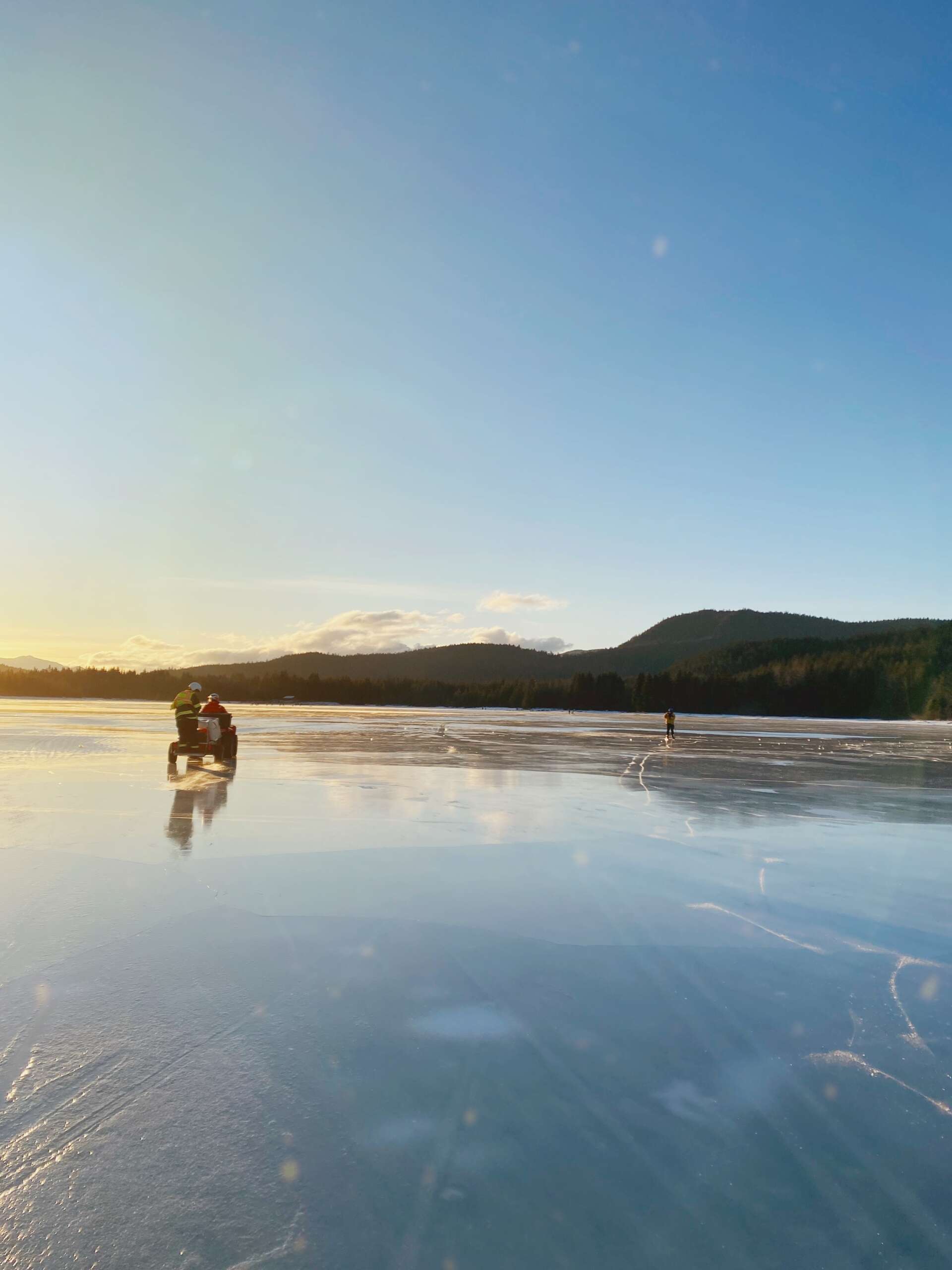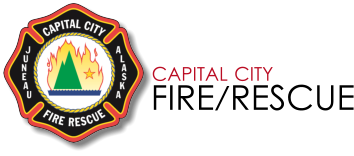Volunteer
Whatever your experience, there’s a lot to learn in the EMS/Fire service
The introductory level of firefighting training is scene support. These individuals provide scene support for the firefighters at various incidents. New volunteers must reach this certification before they are able to respond to any fire incidents. The introductory level of EMS training we offer is ETT (Emergency Trauma Technician). The level of training one can receive from CCF/R builds up from there.
The introductory level of firefighting training is scene support. These individuals provide scene support for the firefighters at various incidents. New volunteers must reach this certification before they are able to respond to any fire incidents. The introductory level of EMS training we offer is ETT (Emergency Trauma Technician). The level of training one can receive from CCF/R builds up from there.
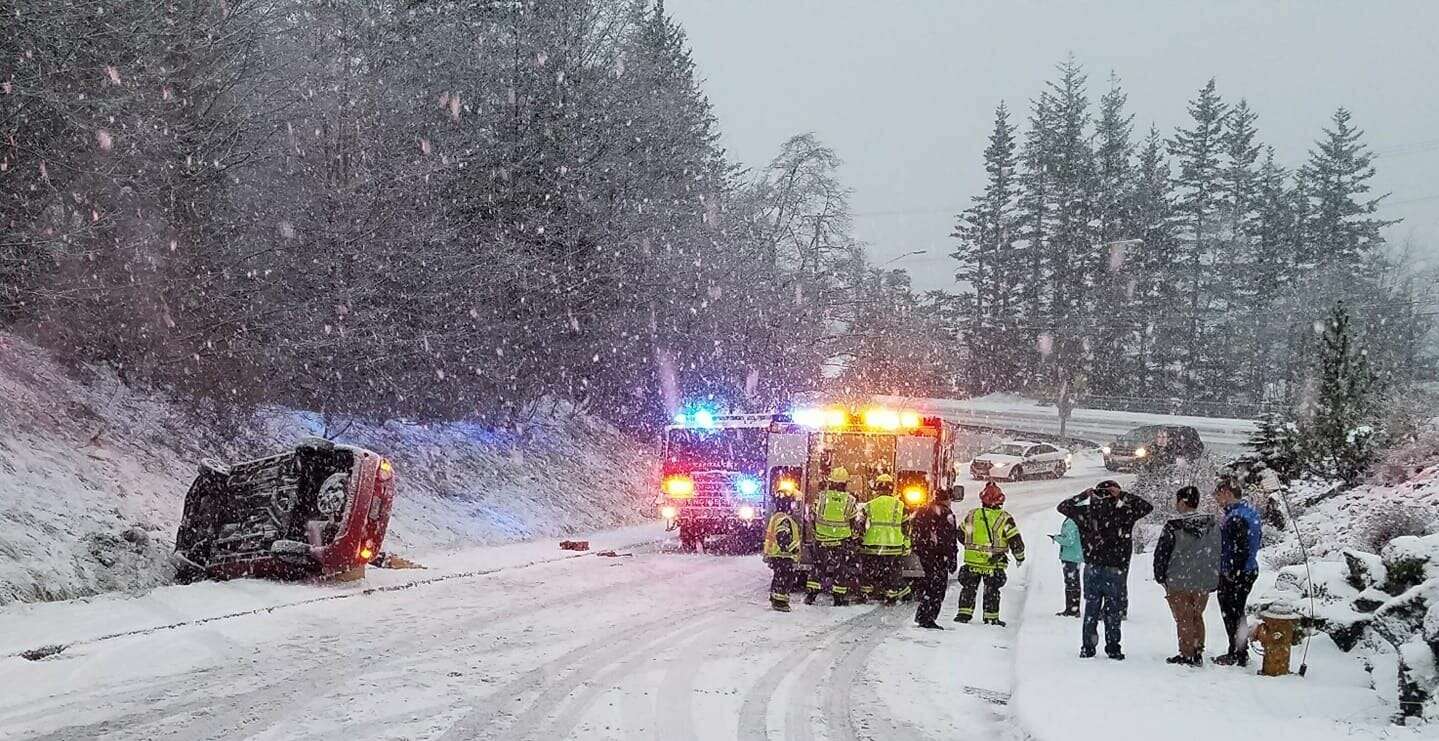
Responses
Our types of responses are varied. For firefighting, we respond to structure fires, vehicle fires, boat fires, wildland fires, and aircraft fires. We provide ambulance service within the City and Borough of Juneau. We also provide swift water, ice, rope, and trail rescue services as well as responding to hazardous materials incidents. Members of the volunteer staff can be firefighters, EMS personnel, part of a special or more than one.
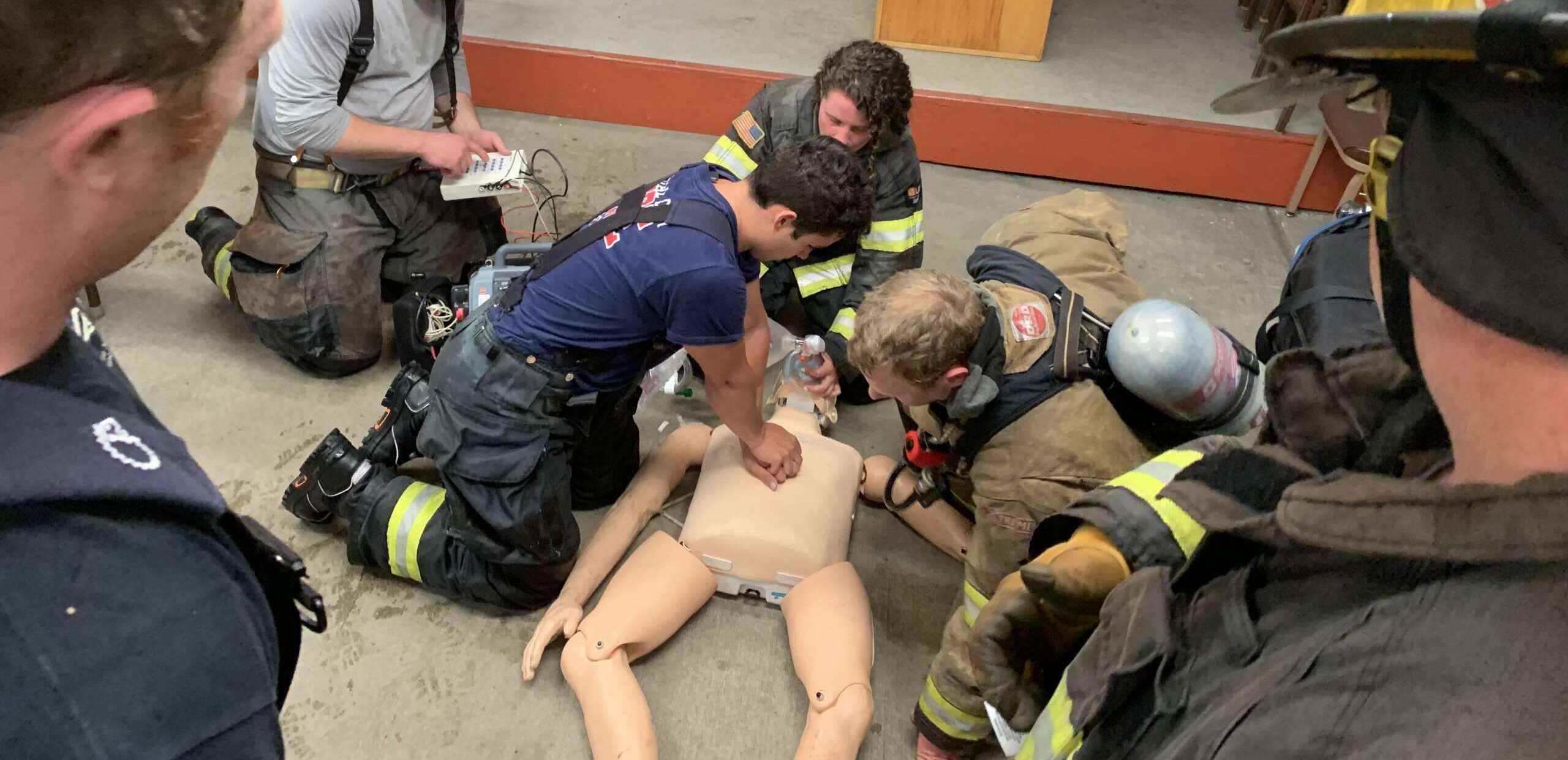
Certifications
Volunteering with CCF/R requires extensive training to obtain certificates and to keep up with the skills, knowledge, and abilities associated with those certificates. The requirements for annual training are for scene support or firefighter 50 hours per year; for ETT or EMT I is 24 hours per year; for an apparatus operator 9 hours per year; and Special Team members range from 12 to 24 hours per year.
If you have more than one certificate, the hours are cumulative. For example, if you are a firefighter and an EMT I, you would be required to have 74 hours per year.

Commitment
In order to meet these requirements, we offer several drills a month. For the Firefighters and Scene Support responders, we hold drills on the second, fourth and fifth Thursdays. For EMS personnel, we hold drills on the first and third Thursdays. For Special Teams, depending on what team you participate in, we hold drills on the second, third and fourth Tuesdays. All drills usually start at 7 pm.
To meet the training requirements, you need to attend most of the drills for your certification level. These drills also give you a chance to meet and work with other members of CCF/R. Lack of drill attendance can result in severance from the volunteer program.
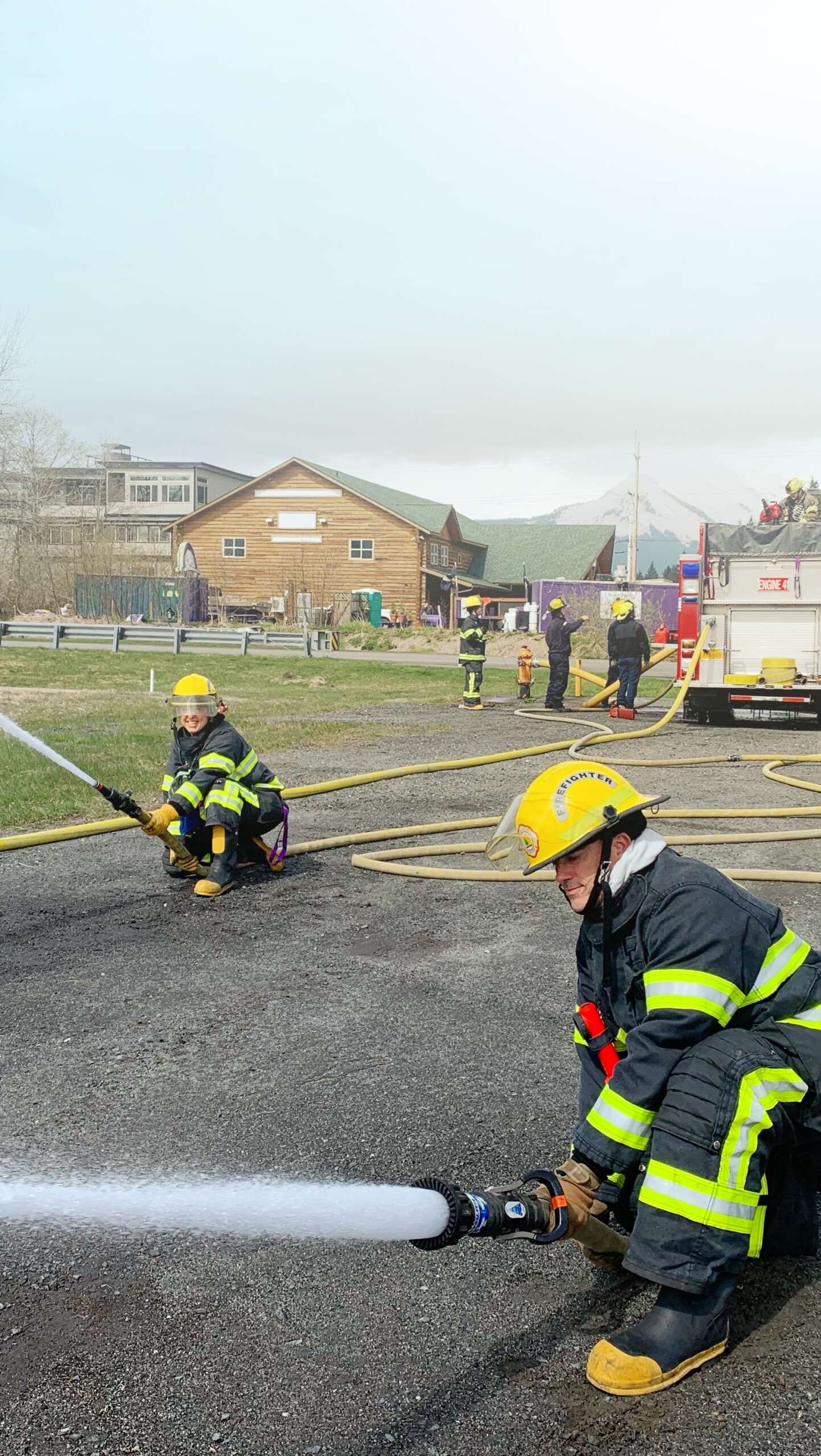
Application Requirements
Volunteer applicants must provide the following:
- Volunteer Application
- Two Letters of Reference
- Criminal Background Check
- Driving Record
*If you have lived in Alaska for less than 2 years, you must also provide a driving record from your previous state
- Information Release Form
- Color Copy of Driver’s License
Applications must be submitted in person to the Administrative Offices at the Downtown Station:
820 Glacier Highway, Juneau, AK 99801
(907) 586-5322
Volunteer applicants must provide the following:
- Volunteer Application
- Two Letters of Reference
- Criminal Background Check
- Driving Record
*If you have lived in Alaska for less than 2 years, you must also provide a driving record from your previous state - Information Release Form
- Color Copy of Driver’s License
Applications must be submitted in person to the Administrative Offices at the Downtown Station:
820 Glacier Highway, Juneau, AK 99801
(907) 586-5322
Application Process
If you pass the initial screening, you will be contacted to come in for an interview. This interview will be similar to an informal job interview. If the selection committee approves your interview, you will be asked to fill out the second half of the application.
Once that portion of the application is processed, you will be assigned a mentor and given the dates for the next Orientation and EVOC classes. Orientation will introduce you to CCF/R as well as comply with federal regulations for initial training you need to participate in.
EVOC (Emergency Vehicle Orientation Class) is required before you can drive to any incident. If you miss either class, you will have to wait until the next evolution occurs.
